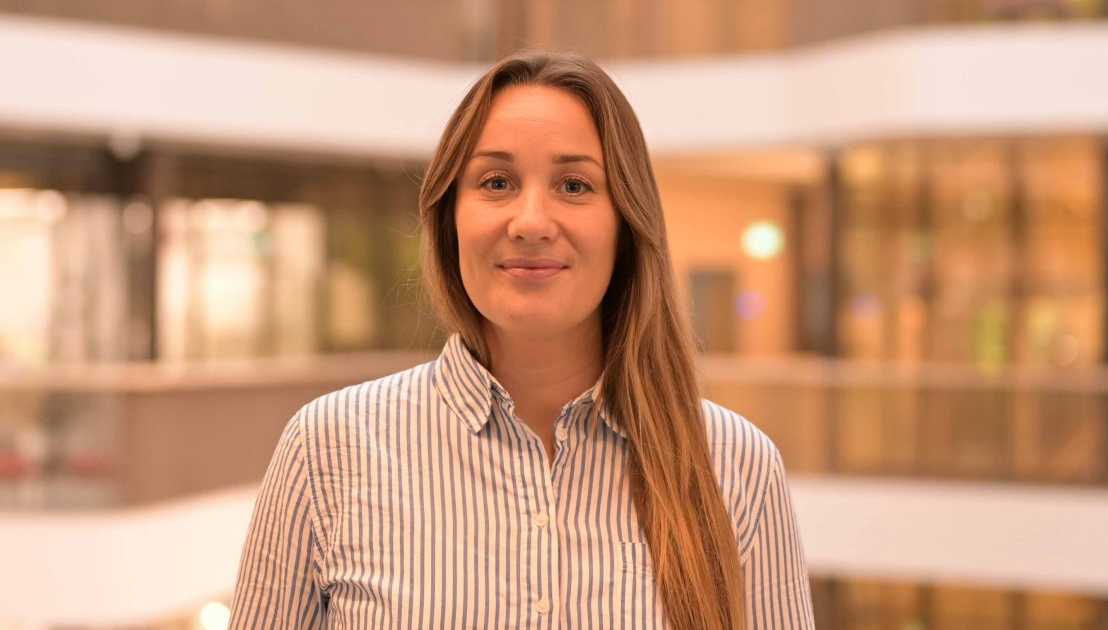Meet Joanna Hård studying tissue regeneration in humans
Using single-cell sequencing and spatial transcriptomics, the Swedish postdoctoral stem cell scientist in the Beerenwinkel group is developing a computational method for cell lineage and gene expression analysis in humans to further our understanding of cell and tissue regeneration. Joanna likes the Rhine River and skiing in the alps.

What did you know about D-BSSE before you came here, and what was your motivation to come to ETH Zurich?
I visited Niko Beerenwinkel’s group during my doctoral studies at Karolinska Institutet in Sweden, as I was using the methods developed by his group in my research. The collaborative and friendly environment made my visit fun and productive. This sparked an interest to learn more about the research in Niko Beerenwinkel’s group and at D-BSSE. I was therefore happy to be given the opportunity to return to ETH Zurich for pursuing a postdoc.
What were your expectations and were your expectations met since you arrived in Basel?
Basel already feels as a home although it has only been a couple of months since my arrival. The city has a nice vibe and plenty of fun activities to do after work and on the weekends. In particular, I like the Rhine River, the proximity to nature, the art exhibitions and music events. I look forward to exploring the areas surrounding Basel.
What were your first impressions?
I had a great first impression of the research group and this has been further reinforced. The multi-disciplinary scope of the group and the department is very interesting. In addition to the stimulating research environment, everyone is very nice, fun and supportive. I’m glad to have met many new friends in Basel.
Which research will you pursue at D-BSSE?
I will develop a computational method for cell lineage and gene expression analysis in humans. This will be done by retrospectively deciphering the order of naturally occurring somatic mutations in individual cells. During normal cell division, new random mutations occur. Such genomic mutations form an evolving barcode which carries information about the developmental relationships between individual cells. Shared somatic mutations can be used to trace backwards across cell lineages, allowing us to study the evolution that occurs within the lifespan of an individual. The driving goal of my research is to use this methodology to study how tissues and organs are formed and function in the healthy state and in disease and to identify stem cells with the capacity to regenerate damaged tissues.
Which hobby do you hope to pursue in Switzerland?
I look forward to the ski season and to spend time in the mountains for skiing and hiking. Besides these activities, I like riding my bicycle and swimming. I have not yet tried to swim in the Rhine river but this will definitively happen when the weather gets a bit warmer.
Joanna Hård studied biomedicine and bioinformatics at Karolinska Institutet and Stockholm University. She then joined Jonas Frisén's lab in the Department of Cell and Molecular Biology at Karolinska Institutet for her PhD studies in regenerative medicine. In 2022, Joanna was awarded the Swiss National Science Foundation Postdoctoral Fellowship and joined Niko Beerenwinkels group at D-BSSE, ETH Zurich. Her research interests are focused on developing and applying methods for phylogenetic inference of human cells to unveil the relationships between mature cell types and their progenitors.
Learn about research in the Computational Biology group led by Niko Beerenwinkel.
